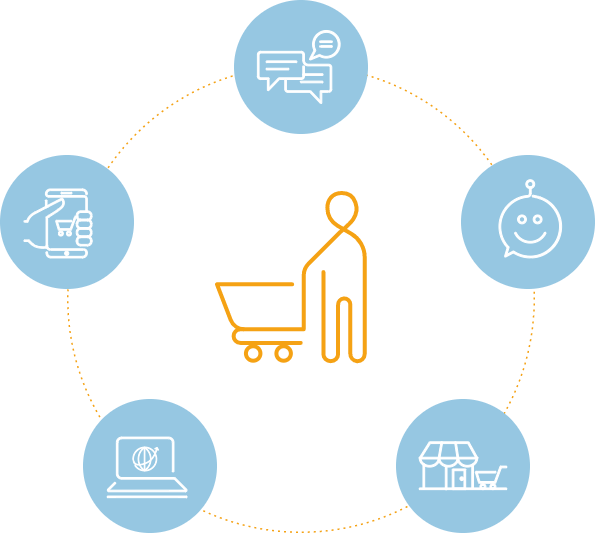Understanding Omnichannel CRM
Customers used to have two main choices when communicating with a brand. They could either walk into a store or call on the phone. Today, there are multiple channels and platforms. They can still visit in person or call, but they can also go to a website with self-service options, visit a social channel like Facebook, conduct business using an app, communicate with a brand’s chatbot and more. More than half of customers engage with three to five channels during each journey they take toward making a purchase or resolving a request. This translates into a lot of crucial information per customer per interaction.
Businesses can collect this interaction data from all possible channels and pool it in a central location. This provides actionable insights for creating a consistent and smooth customer experience - each time and throughout the customer lifecycle. This is what is referred to as an Omnichannel CRM (customer relationship management) system.
By creating a single source of truth for all customer data, omnichannel CRM integrates customer demographics, contact information, social media engagements, interactions with representatives, purchases, service requests, web activity and more.
Further, with embedded AI capabilities, your CRM can help move you from reactive to proactive. It can provide prescriptive recommendations that make sense to your customers and align with their needs. An omnichannel CRM system helps in creating a scalable, consistent and differentiated customer experience - translating into retention and long-term customer loyalty.










